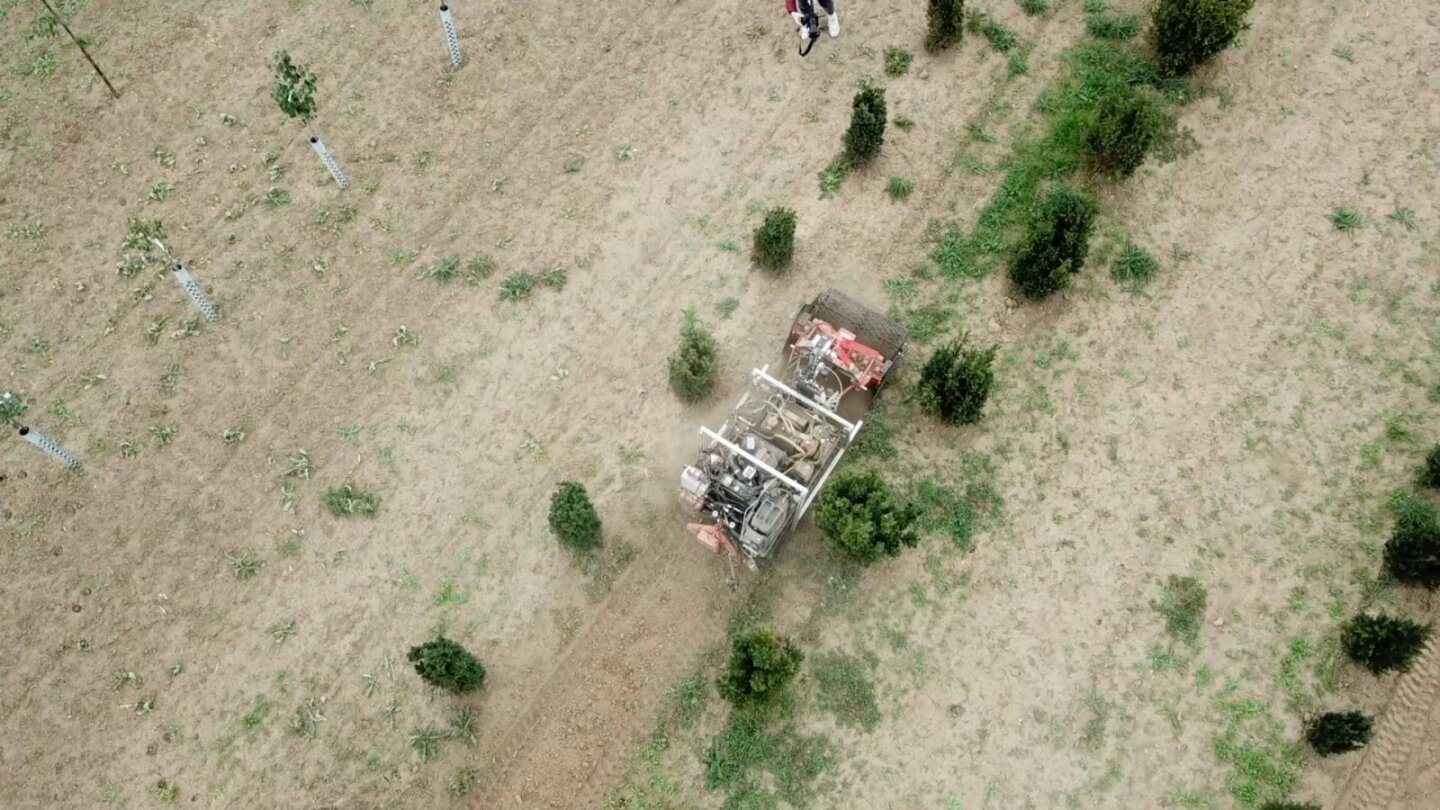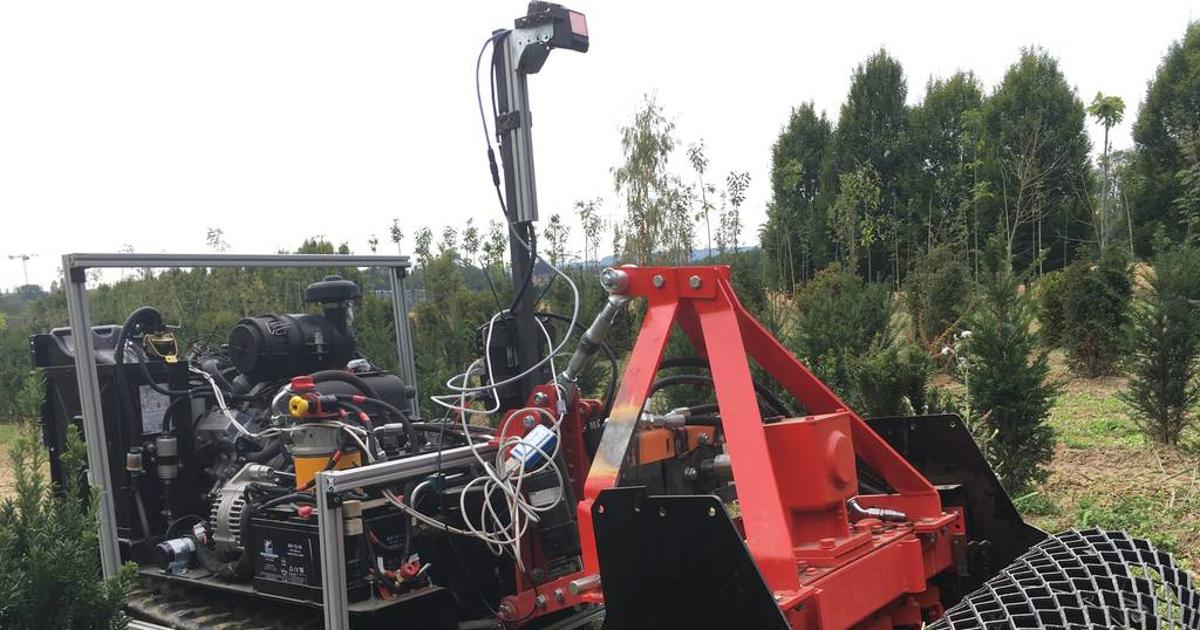[ad_1]
Whereas manually hoeing weeds out of crops will be very time- and labor-intensive, spraying these crops with herbicides is unquestionably not eco-friendly. A German consortium is growing a 3rd selection, within the type of the AMU-Bot weed-killing robotic.
Shifting alongside on caterpillar-type treads, the bot is able to autonomously travelling up and down the rows of crops in orchards, vegetable fields or tree nurseries. It makes use of onboard LiDAR scanners to remain between these rows, and to see the place every row ends so it could flip round and head down the subsequent one.
And though the AMU-Bot is not able to figuring out particular sorts of crops, it is in a position to differentiate between crop crops and others which should not be there – weeds, in different phrases. When one of many latter is noticed, the robotic lowers down a rotary harrow (sort of like a toothed model of the reel on a push-lawnmower) which churns up the soil and uproots the offending plant.
For tackling weeds which can be rising between the rows, the harrow is solely deployed proper in entrance of the robotic because it strikes ahead. However, if a weed is noticed rising between crop crops inside a row alongside the robotic, the machine stops and strikes its harrow sideways into the hole.

Federal Workplace of Agriculture and Meals/Fraunhofer
The AMU-Bot challenge is funded by the German Federal Workplace of Agriculture and Meals, and is being coordinated by the Fraunhofer Institute for Manufacturing Engineering and Automation (which additionally designed the height-adjustable rotary harrow). Bosch is growing the navigation and sensory system, and agricultural robotics firm KommTek is accountable for the caterpillar drive system.
There’s at present no phrase on when the AMU-Bot might enter service. It may face some competitors, although, as different teams are growing robots that use lasers and electrical pulses to kill weeds.
Supply: Fraunhofer
[ad_2]

